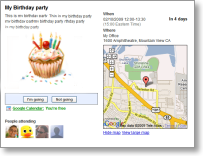
1. Know how much you have to spend and stick within your budget.
It can be great to have a legitimate reason to spend money - provided you are not building up trouble for the next six months. Guilty spending is no fun. And guard against the temptation to buy favour. If you have been neglectful for the past 11 months, your incongruence will be quickly spotted.
2. Get out of your own skin when choosing presents.
How often do you buy things for other people, because you would like the item for yourself? If it is for a close family member, who is this gift really for, you or them? You know those times when you found something that really worked. You became as excited about giving it, as the receiver might feel receiving it. Getting absolutely the right gift is a sign of true understanding and acceptance. Ask yourself, "What would this person really like to see when they remove the last piece of wrapping?" "What would light up their face? And what wouldn't?!"
3. Wake up out of your Christmas trance and choose to change your patterns.
What are your Christmas patterns? Are you the one that does all the cooking or gets landed with all the tidying up? Is it down to you to arrange all the social events and invite people round to your place? Do you always go on the 10 mile walk, get involved in carol singing, or making special visits? Or is your preferred pattern one of getting drunk as often as possible, over eating, staying out all night, falling out with people, avoiding people? Are you the Martyr, the Couch Potato, the Hostess, the Scrooge, the Party Gadfly, the Benefactor? Do you like yourself? Do your patterns leave you feeling good about yourself? Consider if you would rather have or how you would rather be, and come up with at least 5 alternative options. This could be the best present you have ever given yourself - and maybe to others around you.
4. Know in advance what you are prepared to do, and what you are not prepared to do.
Often time spent over Christmas undertaking activities you loathe at worst, and just about tolerate at best? The festive period is notorious for bringing out the "oughts and shoulds", and you find yourself called upon to follow an ancient set of prescribed rules. Compromising yourself over Christmas is a recipe for resentment and ill will - not just for yourself, but for others as well. Check out who is setting the rules, and what might be the consequences of not following them. You can then decide to comply or not. A congruent yes or no, will let others know where they stand, and let them make plans accordingly. Time won't be wasted try to persuade you differently.

5. Mentally rehearse specific events - the Christmas Dinner, the visit to your in-laws, the trip to the Amusement Park.
Look at the event from the eyes of everyone involved. Be aware of the pitfalls and the pleasures. Have contingency plans - if just how to manage your state should things go wrong. Ask yourself "What's the worst thing that can happen, and what would happen if it did?" Notice what is within your control, and what else you can influence. Everything is outside your control and so let it go and accept it. More stress is caused by the fear of what might happen, as opposed to what actually happens.
6. Take a new look at the system you are in.
Christmas is a time when families come together, sometimes for the first time since last Christmas. It is amazing how one minute you are a mature adult, holding down a responsible job, and the next minute you find yourself reacting to your sister/brother/father/mother as if you are still that 10 year old. Then you feel annoyed, or pathetic that it's happening again. The family system can trigger old patterns and knee jerk reactions. The strange thing is you'll find other people responding differently, if you do something different. If you don't lock horns, they will have to find a different response. You will no longer feed off them, or vice versa.
7. Rethink the things that annoy you.
When we get annoyed, it is because we believe that things should be different, or that they/it made us respond like that, or they wouldn't have said that if they didn't mean XY or Z. These are examples of what we are believing: about them, about what is right, or about how people ought to behave. Do these beliefs enhance your sense of wellbeing? Do they leave you feeling good? Which ones could be more useful? Remember, to misquote Eleanor Roosevelt - "No one can wind you up without your permission." Take a moment to notice the meaning you are giving to the behaviour and ask yourself "What else could this behaviour mean?" "When could it be really useful?" You could even become curious about what has to be happening for them, for them to behave like that. This way you give yourself the opportunity to respond differently to that "typical present", "typical remark" or "typical response."
8. Be aware of what you really enjoy about Christmas festivities.
Take the time to make a list, and remind yourself what is so good about each of them. They may evoke bygone memories; they may pleasurably fill your senses, or they may give you a sense of fulfilment, excitement, or compassion. It might be choosing gifts for certain people, wrapping your presents, hearing the Christmas music on the radio, going to parties, wearing special clothes. It might be experiencing the rituals of religious observance. As you become aware of each of them, relive them with all your senses, so that you will recognise and relish them when they actually arrive. This will help to counter balance those other moments, which you have chosen to tolerate.
9. Build in exercise to balance out the eating and drinking.
Make sure you get outside and give yourself some fresh air. There is so much socialising going on indoors, so much on the telly, that your system can do with a break outside - even if you are not naturally an outdoors person. Arrange to go on a walk, see if you can leave the car behind, clear the garden. And know that dancing the night away is a great way to burn off the calories.
10. Consider this to be the first Christmas of its kind.
If you are expecting history to repeat itself, it probably will. If you have a sense of inevitability that things will go badly, then it is likely you will have a hand in making it happen. Often when we believe that such a thing always happens, or so and so never does what you want, or everyone takes you for granted, then you will find yourself looking for evidence to support this thinking - completely missing all the evidence that might say otherwise - the times when things didn't happen, or what did go well, or when you were appreciated. Start noticing what is different. Start noticing what you are doing differently. How you are thinking differently. And if you find yourself slipping into old habits, let this be a signal for you to do something completely differently.
Have the Christmas that you make for yourself.
Best Wishes to You All
by: Fran Burgess : nlpand Website
More to Read






